What’s the Difference Between Vegan, Vegetarian and Plant-Based Diets?
Jun 06, 2022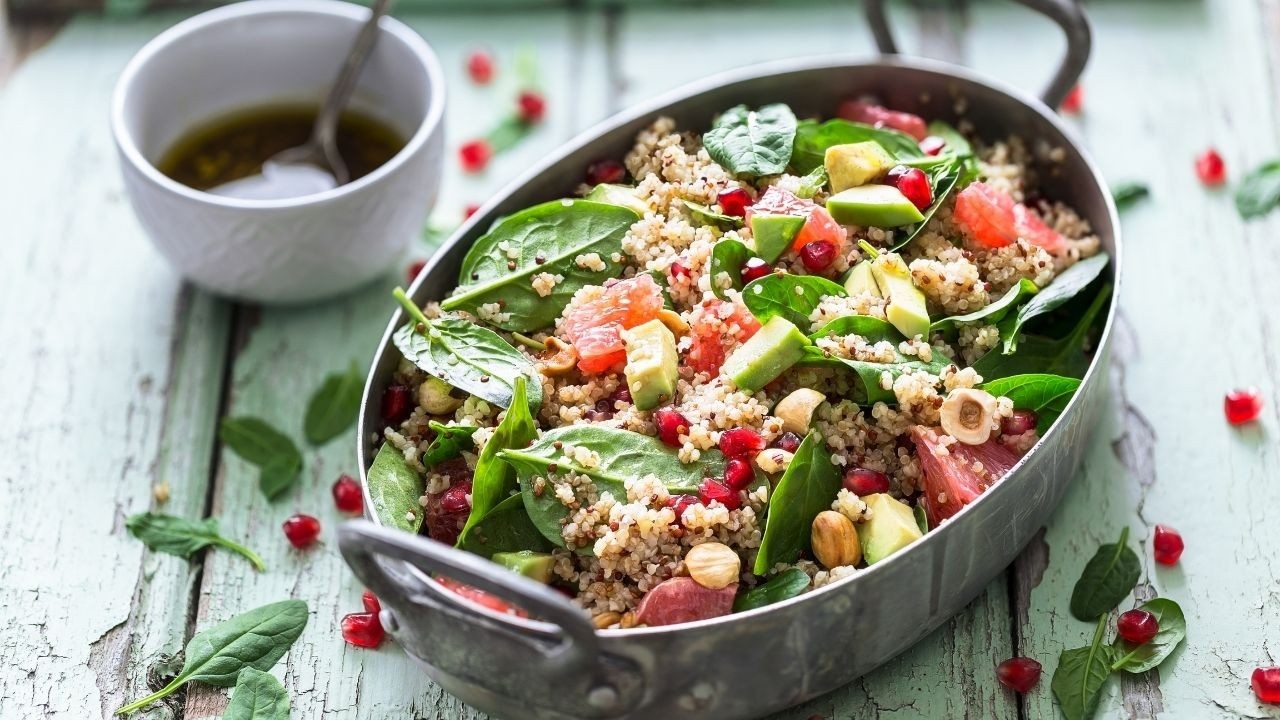
Plant-Based Diets: Just a Fancy Term for Vegan?
Plant-based diet. Vegan. Vegetarian. Whole food plant-based… Often when beginning anything new, there are new skills to learn and sometimes new terminology. So, if you find yourself confused by these terms, know that you’re not alone. Even some celebrities, the media and restaurants can get this mixed up at times. On some occasions, a plant-based diet is used to mean a vegan diet, while other times it is used to mean a diet that includes some animal-based products but has an emphasis on plant foods and plant-focused meals.
If you have just started your plant-based diet transition, this can be an especially confusing area. But getting these terms right helps to build a strong foundation for this new lifestyle you are embarking on. This understanding will also come in useful as conversations arise with friends and family members about the way you eat…yes you will likely get questions from concerned and curious loved ones as you begin your plant-based diet transition. What do you say then? This article will help clarify these key important terms, so read on!
A Plant-Based Diet
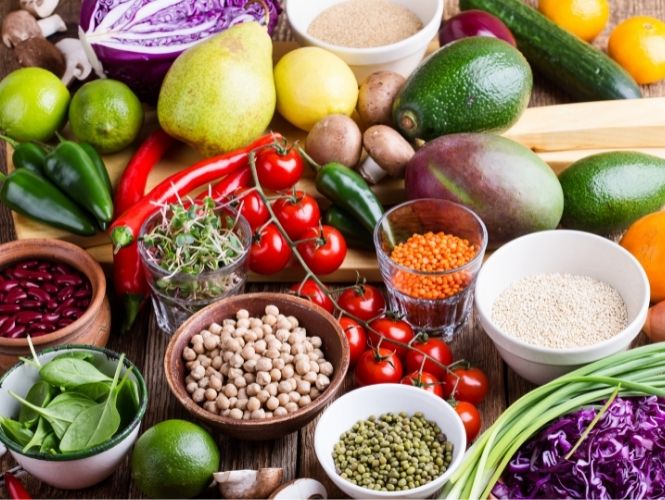
First, let’s define a ‘plant-based diet’. To put it simply, a plant-based diet is one that essentially excludes all animal-based products or limits them. It’s a big umbrella term covering many different diets beneath it, just like how the term ‘fruit’ covers bananas, tomatoes and stone fruits like peaches. Well under this ‘plant-based diet’ umbrella, there are more specific diets such as vegetarian diets, vegan diets and whole food, plant-based diets.
Vegetarian Diets
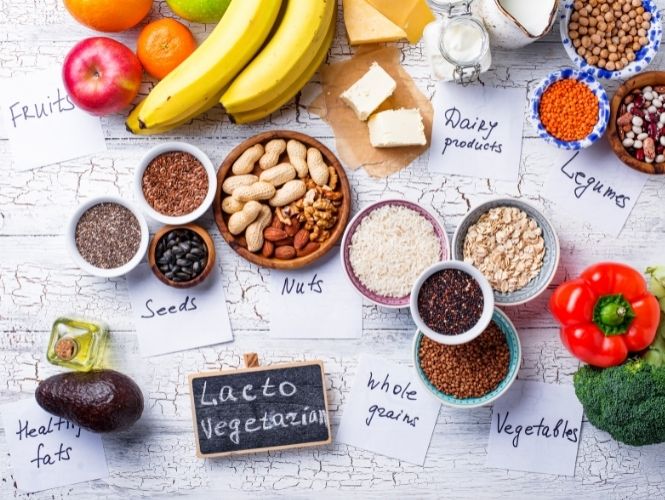
A vegetarian diet is a way of eating that avoids red meat, poultry and fish, but may include some other items of animal origin. For instance, a person who is a lacto-ovo vegetarian will still consume dairy and eggs regularly. On the other hand, a lacto vegetarian only includes dairy products and avoids other animal-based protein foods. And an ovo vegetarian will consume eggs and other egg-derived foods and products but would avoid all other sources of animal-based protein. As you can see, there are quite a few variations of a vegetarian diet!
A Whole Food Plant-Based Diet versus a Vegan Diet
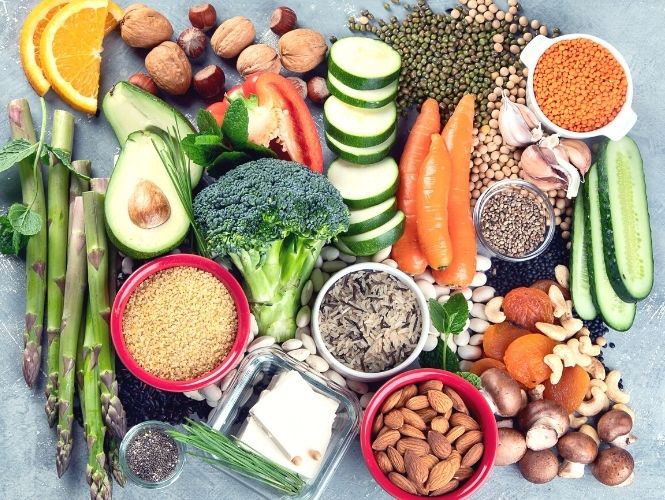
At this point you may be wondering, “What about a whole food plant-based diet? How is it different from a vegan diet?” Here are a few key distinctions. In a nutshell, a whole food, plant-based diet is a way of eating that:
- avoids all animal-protein based foods and other animal-derived food products
- focuses on whole, unrefined, or minimally refined plant-based ingredients like fruits, vegetables, nuts, seeds, tubers, whole grains, and legumes
- excludes or minimizes commercially processed and highly refined foods like white flour, packaged sugary cookies, and pastries
As can be seen, there is an emphasis in this eating pattern on consuming naturally unprocessed or minimally processed foods as much as possible (hence the phrase ‘whole food’). Strict adherents to this way of eating would tend to only consume commercially unprocessed whole plant-based foods, avoid all manufactured processed foods and in some cases may also adopt a no-added-oil eating pattern. Often, people who are on a whole food plant-based diet do so for health reasons.
A person on a vegan diet, on the other hand, subsists entirely on plant-based foods and excludes all sources of animal protein foods and products from the diet. A person on a vegan diet may, however, use more heavily processed commercial vegan products, including packaged snack foods and processed meat-alternative products. This is different from a whole food plant-based eating pattern that focuses mainly on unrefined whole grains like quinoa, brown rice, buckwheat, beans, lentils, chickpeas, nuts, seeds, fruits and vegetables.
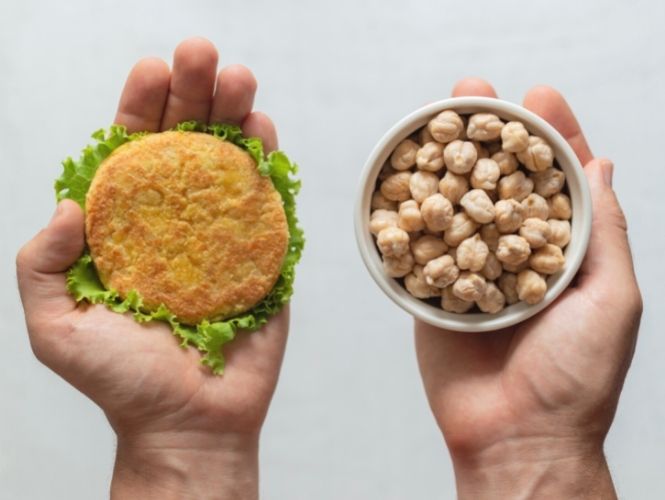
More subtle differences may be present too. In both cases, a number of different reasons may motivate vegans and plant-based eaters to choose their dietary patterns. These reasons may include a desire to build one’s own health, improve the health of loved ones, to safeguard and protect the environment, and to oppose animal cruelty. However, a person who is on a vegan diet may extend his or her desire to protect and prevent harm to animals to other lifestyle decisions. These may include choosing to avoid leather products, abstaining from using honey, and not purchasing cosmetic products that are tested on animals or that contain animal-derived ingredients.
More Than Meets the Eye
It should be noted though that nowadays, the lines are starting to blur between vegan and whole food, plant-based diets. Sometimes, even if a person says they are on a vegan diet, they could be still focusing almost exclusively on whole plant-based foods, and hence their way of eating could mirror closely that of a person on a whole food, plant-based diet. However, as discussed earlier in this article, those who identify themselves as being a vegan often have strong ethical reasons for eating this way too, and that motivation reaches into other areas of their lifestyle.
The Key Takeaway
What’s the takeaway? A whole food, plant-based diet is generally different from a vegan diet. There can potentially be quite a big difference between the actual foods eaten by individuals on a whole food, plant-based diet versus those on a vegan diet, depending on actual dietary practices.
When a person says he or she is on a plant-based diet, that could also mean any number of specific eating patterns under the plant-based diet umbrella term. So, it is always helpful to take the time to find out more when a person self-identifies as being a vegan or on a plant-based diet, to find out what kinds of foods are regularly part of their meals.
Regardless of what eating pattern you are on, though, the BEST foods to focus on and build increasingly into your meals to optimize your health are unprocessed and minimally processed whole plant-based foods. That’s because the greatest concentration of disease-fighting nutrients, antioxidants and phytochemicals are found in whole plant-based foods!
But know this too: it is absolutely fine to be in a phase of transition between these different eating patterns and moving gradually towards the most healthful goal of adopting a whole food plant-based eating pattern. We are all at different points on our plant-based journeys and I want to support you in reaching the health and wellness goals you desire.
Before You Go, Grab this FREE Resource
If you’re wanting to learn how to start plant-based eating or to begin a whole food plant-based diet, grab this FREE resource “Beginner’s Quick Guide to Must-Know Plant-Based Diet Basics” to help you on your journey.
This FREE guide gives you the essentials you need to get started, including key terms to know about, rich plant-based sources of important nutrients, and some top budget money-saving tips. This guide is perfect for anyone interested in transitioning to a plant-based diet. So grab this guide if you’re looking for tips for eating a plant-based diet!



